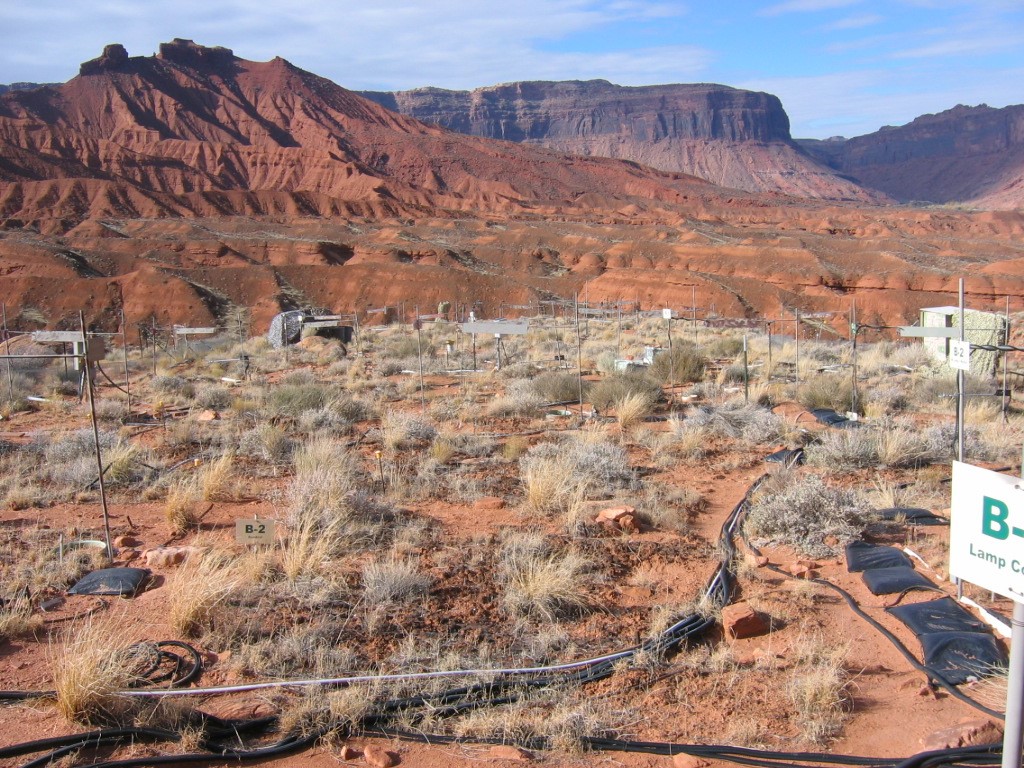Sasha C. Reed (Moab, Utah, USA): Dryland ecosystems represent our planet’s largest biome and are home to billions of people, yet, our appreciation of the importance of drylands in global functions and feedbacks is still quite poor. Further, while we know arid and semiarid ecosystems can be affected by a host of anthropogenic changes – such as climate change, increasing atmospheric CO2 concentrations, land use change, and nutrient deposition – a synthetic understanding of the mechanisms and larger-scale consequences of this change remains elusive. In this talk, I will use a biogeochemical lens to examine how dryland plants and soils are affecting and affected by environmental change. By considering the cycles of carbon, nitrogen, and phosphorus both above- and belowground, I will ask questions about how drylands work and how they are responding to a changing world. This will include discussions about the fascinating biological soil crusts that help regulate dryland function. I will cover topics such as temperature effects in warm biomes, the potential for mass mortality events, and unexpected consequences of nitrogen deposition. I hope to leave you with a biogeochemical appreciation for the importance and complicated connections of these spectacular and dry systems.
Beginn des Seitenbereichs:
Seiteneinstellungen:
Ende dieses Seitenbereichs. Zur Übersicht der Seitenbereiche
Beginn des Seitenbereichs:
Suche:
Schließen
Ende dieses Seitenbereichs. Zur Übersicht der Seitenbereiche
Suchen
Beginn des Seitenbereichs:
Hauptnavigation:
Seitennavigation:
- Universität
Universität
Lösungen für die Welt von morgen entwickeln – das ist unsere Mission. Unsere Studierenden und unsere Forscher:innen stellen sich den großen Herausforderungen der Gesellschaft und tragen das Wissen hinaus. - Forschungsprofil
Forschungsprofil
Wissenschaftliche Exzellenz und Mut, neue Wege zu gehen. Forschung an der Universität Graz schafft die Grundlagen dafür, die Zukunft lebenswert zu gestalten. - Studium
Studium
Wo ist der beste Ort zum Studieren? An der Uni Graz. In einer inspirierenden Atmosphäre des Lernen und Forschens. Mit rund 120 Studien zur Auswahl. Für deinen Weg in die Zukunft. - Community
Community
Die Universität Graz ist Drehscheibe für internationale Forschung, Vernetzung von Wissenschaft und Wirtschaft sowie für Austausch und Kooperation in den Bereichen Studium und Lehre. - Spotlight
Ende dieses Seitenbereichs. Zur Übersicht der Seitenbereiche
Beginn des Seitenbereichs:
Sie befinden sich hier:
Universität Graz Veranstaltungen Dryland responses to anthropogenic change: a biogeochemical perspective
Ende dieses Seitenbereichs. Zur Übersicht der Seitenbereiche
11.01.2022
17:00 - 18:30
Institut für Biologie
08
Mai 2024
17:00 - 18:30 Uhr
A heritage innovation and its predicting factors: exploring the integration of German verbs by heritage speakers of BCMS in Austria
08
Mai 2024
17:00 - 19:30 Uhr
Vortrag aus der Vortragsreihe „Facetten der Physik“
08
Mai 2024
17:30 - 19:00 Uhr
“Beyond nationalist frames”:
Beginn des Seitenbereichs:
Zusatzinformationen:
Ende dieses Seitenbereichs. Zur Übersicht der Seitenbereiche
Ende dieses Seitenbereichs. Zur Übersicht der Seitenbereiche
